On the 22nd of February, 1511, Prince Henry, the Duke of Cornwall, suddenly died only after only 52 days of life. He was born on the 1st of January 1511 at Richmond Palace, eighteen months after his parents’ wedding and their joint coronation.

Little Henry was the first son and first living child born of King Henry VIII and his first wife, Catherine of Aragon, but he was destined to predecease his father. No picture of the prince remained.
Edward Hall, the infamous Tudor chronicler, recorded the boy’s death:
“After this great joy came sorowfull chaunce, for the young Prince, which was borne upon Neweyeres daye last past, upon the. xxii. daye of February, beyng then the eve of sainct Mathy, departed this world at Rychcmonde, and from thense was caryed to Westmynster, and buryed.
The kyng lyke a wyse prynce, toke this dolorous chaunce wonderous wysely, and the more to comfort the Quene, he dissimuled the matter, and made no great mourning out-wardely: but the Quene lyke a naturall woman, made much lamentacion, how be it, by the kynges good persuasion and behauiour, her sorowe was mytigated, but not shortlye.”
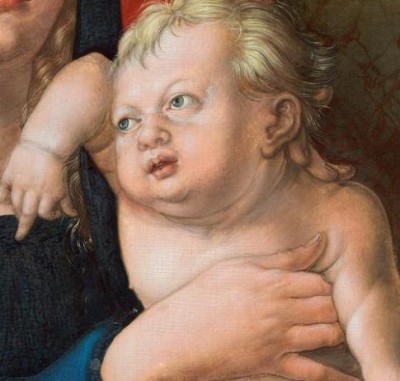
When Catherine delivered a son on the 1st of January 1511, the royal couple and their courtiers were overwhelmed with joy and gladness.
King Henry didn’t spare expenses on celebrations: two hundred and seven pounds of gunpowder was spent firing salute after salute in the Tower of London, bonfires burned in the city, many fountains ran with wine and processions of thanksgiving passed through the streets. Everyone’s mood was festive, and nobody imagined that the boy would die so soon after his birth.
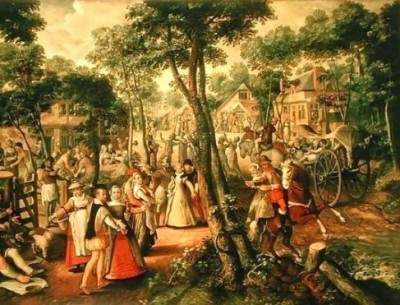
David Starkey gives a detailed account about the boy’s christening on the 5th of January 1511:
“For greater ceremony, the christening was ‘deferred’ until Sunday the 5th. It took place in the church of the Observant Friars (Catherine’s favourite Order) at Richmond Palace. Rails and posts were erected from the Great Hall to the church to make a processional way, twenty-four feet wide. This was gravelled and hung with tapestry. Inside the church, the great silver font stood on a high, stepped platform. The boy’s godfather was King Louis XII of France and his godmother the Archduchess Margaret. And he was christened Henry. The heralds cried his name and titles – ‘Prince Henry, first son of our sovereign lord King Henry VIII’ – and the proud father rewarded them with the extravagantly large sum of £20.2
As protocol dictated, neither Catherine nor Henry was present at the christening. Instead, Catherine remained within her Chamber. After the christening, her son was brought back to her in procession, preceded by his baptismal gifts. These were carried in the order of the rank of the giver and were headed by the magnificent presents from his godfather, Louis XII: a great salt, weighing fifty-one ounces, and a cup, weighing forty-eight ounces, both of fine gold. The gifts and the child were presented to the Queen by her ladies.”
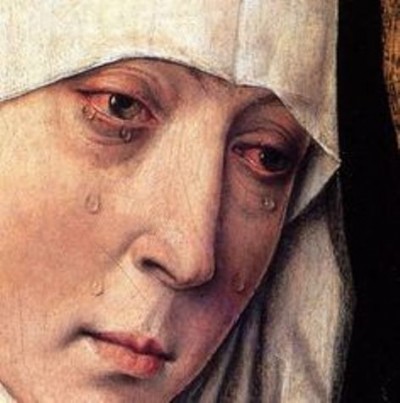
When Prince Henry died, Catherine was distraught and inconsolable in her grief; she was overcome by the agony of her sorrow. However, King Henry took the news of his son’s death with a façade of courage, calmness, and dignity: he concealed his feelings of grief and disappointment and comforted his wife, probably saying in response to her lamentations that they both were still young and would have more healthy children.
No blame was attached to the nursery staff for the little prince’s death, for the child seemed to have died of natural causes. The exact reason of Prince Henry’s death is unknown, but there is no evidence that the boy was born a sickly baby who was more likely to die than to live and thrive. His death was sudden and unexpected, hitting the king and the queen very hard. According to some sources, the child died of an intestinal complaint.

The boy received a state funeral at Westminster Abbey; he was buried on the north side of the Sanctuary area near the entrance to the chapel of St Edward the Confessor. Alison Weir writes about the prince’s funeral:
“The Keeper of the Wardrobe supplied an elaborate hearse on which the tiny body was conveyed to London. Dozens of wax candles burned around the hearse day and night while a round-the-clock vigil was kept over it by black-clad mourners in Westminster Abbey, where the Prince was afterwards buried late at night in a torch-lit ceremony. “His soul, wrote an observer, was “now among the holy innocents of God.”
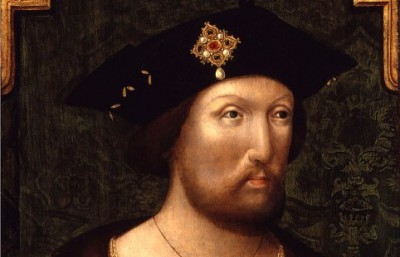
Henry VIII made no further outward displays of grief and seemed to have moved on. However, I am sure that the king was disappointed in his queen’s second failure to give him a male heir, although he definitely hoped that they would have more children in the nearest future. It was another two years until the queen again became with child, and in 1513 she birthed a son who was either stillborn or who didn’t survive long.
King Henry wasn’t going to divorce Catherine even after her third failure. He was young and immature in some ways, and he had some growing up to do, which increased his optimism for the bright future with Catherine and an army of Tudor princes, each of them a small copy of “their mighty and great father”.

The king always remained an egotistical and spoiled king, a man of a vain and narcissistic spirit. He wasn’t wise enough to realize that he shouldn’t have blamed only his wives for their failures: at least, he could have taken into account the fact that child mortality rate was very high in Tudor England.
Many years later, the afore-mentioned set of qualities – Henry’s huge ego and his narcissism, his obsessive desire to blame others for his possible inability to sire a healthy son, his spoiled nature, and his increasingly evident innate brutality – would play a crucial role in Henry’s decision to get rid of Catherine and marry Anne Boleyn in his quest for a male heir.
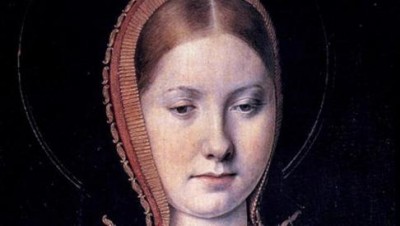
Although Catherine was pregnant at least six times, fate played a cruel trick on her: she failed to give England a future king with Anglo-Spanish blood in his veins, which predetermined the demise of her marriage to Henry.

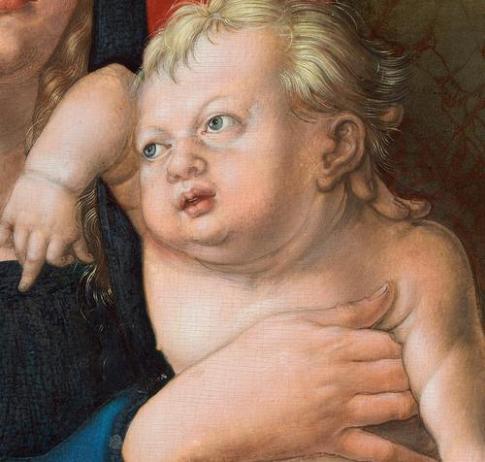



Henry VIII was a sick , mentally I’ll bastard! Catherine was much better than him. But I think his grandmother cursed them so none of their children would to adulthood.alltogether the Tudors were bastards!
Hello! Thank you for your comment, and I’m sorry for the belated response. I’ve been going through a highly stressful year of my life following my father’s death, and so many things, including my online activities, have literally stopped for me.
I fully agree that Henry VIII was not an easy man to live with. Not an easy man in general and a controversial king as well. Catherine of Aragon deserved to have a better husband. I am not sure someone cursed him because it can all be a product of fiction.
I hope you are doing okay now. By the way, we intend to publish a sequel to my first novel of Anne Boleyn and François I (alternate history) in early 2023.